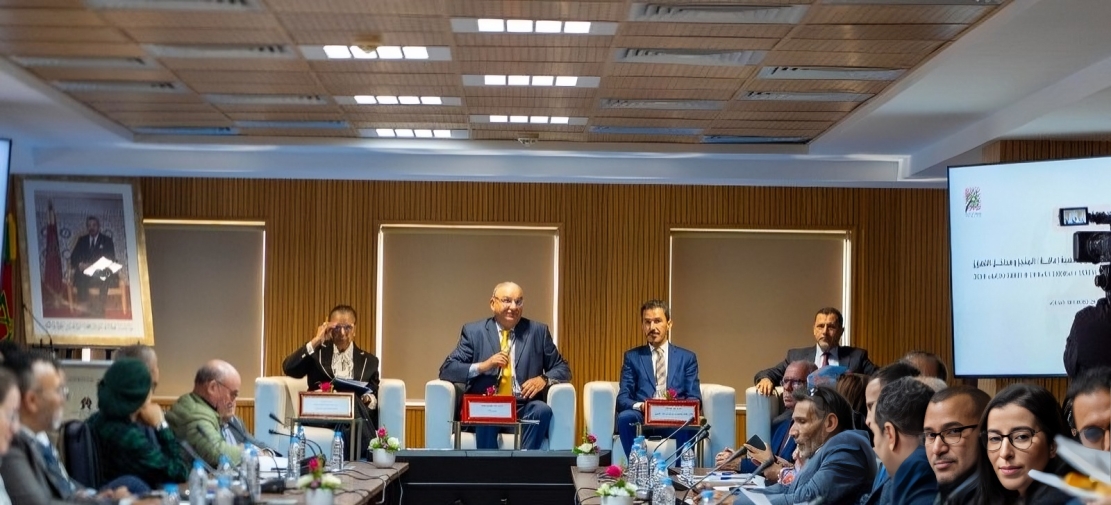- 13:12Trump's Election Sparks Unprecedented Surge in Billionaire Wealth
- 12:12Morocco Showcase Summit: A Gateway to Tourism and Investment Opportunities
- 11:13Urgent Calls and Delayed Action: A Closer Look at Valencia's Flood Response Crisis
- 10:40Over a Decade of Service to Casablanca's Mobility
- 09:57Trump's Return to Power: Promises and Challenges Ahead
- 09:22Morocco's Unyielding Commitment to Its Territorial Integrity in the Sahara
- 08:48Anticipating Change: U.S. Administration Braces for Migrant Influx Ahead of Trump Presidency
- 08:10Urgent Evacuations as Mountain Fire Rages in Ventura County
- 07:34Drought Devastates Amazon Basin: Over 420,000 Children in Crisis
Follow us on Facebook
Moroccan Human Rights Council Initiates Dialogue to Bolster Disability Rights
In a move to strengthen the rights of individuals with disabilities, the Moroccan Human Rights Council (CNDH) organized a dialogue session at its headquarters in Rabat. The event, titled "The National Mechanism for Protecting the Rights of Persons with Disabilities: Achievements and Enhancement Approaches," aimed to assess the progress made thus far and explore avenues for further improvement.

Mounir Bensalah, the General Secretary of CNDH, highlighted the importance of the gathering, stating, "It provides an opportunity to review the work accomplished by the national mechanism over the past four years of its mandate." He explained that this review encompassed an analysis of complaints, individual cases, and a thorough examination of reports incorporated into the council's general report.
The event brought together a diverse group of stakeholders, institutional actors, and representatives from civil society to engage in a constructive dialogue on issues affecting the rights of people with disabilities. Zhour El Horr, a CNDH member and coordinator of the mechanism for individuals with disabilities, emphasized the event's role in "enhancing and exchanging experiences and enriching the discussion on issues concerning people with disabilities."
Reflecting on the progress made, El Horr noted that while people with disabilities were once marginalized, international and national laws, along with the Moroccan constitution, now prohibit all forms of discrimination based on disability. She highlighted the event's significance as "an opportunity for enriching the discussion, exchanging experiences, and promoting the improvement of these conditions, as well as establishing and enhancing means of protecting them from any violations or breaches of their rights."
In a press release, the CNDH reiterated its commitment to monitoring the effectiveness of rights and enhancing protective measures. This strategy, the council noted, is crucial in addressing challenges related to access to civil, political, economic, social, and cultural rights for persons with disabilities, in accordance with relevant international human rights treaties.
Morocco's dedication to upholding the rights of individuals with disabilities is evident, as the country was among the first to sign the UN Convention on the Rights of Persons with Disabilities and its Optional Protocol in 2009. The council recognized this as a testament to Morocco's commitment to promoting and protecting the rights of persons with disabilities.
The dialogue concluded with a visit to an exhibition commemorating the 20th anniversary of the establishment of the Authority for Truth and Reconciliation. The CNDH's proactive stance in fostering an inclusive society that embraces and empowers individuals with disabilities served as a beacon of hope and progress.



